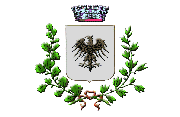 Philosophy Under the Olives |
 Supported by Municipality of Ascea, Cilento, Italy |
 |
| The Parmenideum | Encounters | Accommodation | Arrival | Location | Enquire | ||
|
More about the Parmenideum The Parmenideum is the outcome of a concept shared by a small group of people living in Salerno and the Cilento. The concept is a very simple one: to provide a forum for formal and informal learning, discussion and debate in the service of critical thought whilst also enjoying the beauty of southern Italy. According to this concept, nothing in any society that is less than ideal (and all societies are less than ideal) should be accepted as a truth, especially the pronouncements of politics and religion unless they have passed the "test of a free and public enquiry" (to quote from Kant CPR). Even science and philosophy themselves must be questioned, though of course both philosophy and science invite such questioning and is their very strength. The need for places like the Parmenideum Other, more metaphysical questions have of late made a resurgence, especially with the advances in neuro-cognitive studies and bio-technology. What is consciousness? Are humans moral creatures with free will, or do we simply respond to physical forces and possess no free will? If we believe we are products of a blind evolution, does it make sense to ask such questions at all? Few thoughtful people - and perhaps even the majority who have yet to find time to think deeply - believe that the world is locked in a struggle between good and evil, between Christianity and Islam, black and white, or simply "them and us". Yet these are the prevailing explanations offered for the ills of the world, almost universally presented to us by the media, by governments and even at times in education. And how many of us still, even tacitly, hold on to a belief that our conscious selves are immortal souls free of material cause and effect, a view that is not supported by evidence? However, if thoughtful people doubt the truth of these received beliefs and explanations what, then, is the truth? And how do we go about finding out? Moreover, why should we care? The aim during the weeks and weekends is not to dryly pursue philosophical questions that academics spend a lifetime splitting hairs over, but on the contrary, to engage in and relate the hard work of philosophers and scientists directly to the world we live in (and eventually to life on a daily basis). All too often persons in positions of power and influence - the media, intellectuals, the clergy, and sometimes supposedly impartial academics themselves - call on us to accept pronouncements about the world which they declare as the truth. They may be right, but how are we to know this; how can we be sure that what is presented to us as the truth is in fact the truth? In other words, how can we judge for ourselves the "truths" held about the world? There is a very simple answer and it goes something like this: know thyself (as the Oracle counselled)...but allot more besides. First we need to understand what the nature of the world is, what it is made of and how it works. This is the ontological mission, the central goal of science. Next we need to ask why does the world exist, which is the epistemic search of pure philosophy. Finally we need to take this knowledge and see how best to use it to improve our lives and make the future hopeful, plentiful and secure. That no less, is the ethical goal of philosophy. For a summary of these three go here If you are wondering just how philosophy in the Cilento will enable us to judge the veracity of the "truths" we are expected to believe, and to find alternatives if it turns out we don't believe them, then you will be most at home, and indeed most welcome, at the Parmenideum. More on the concept behind the Parmenideum |
|
|
|